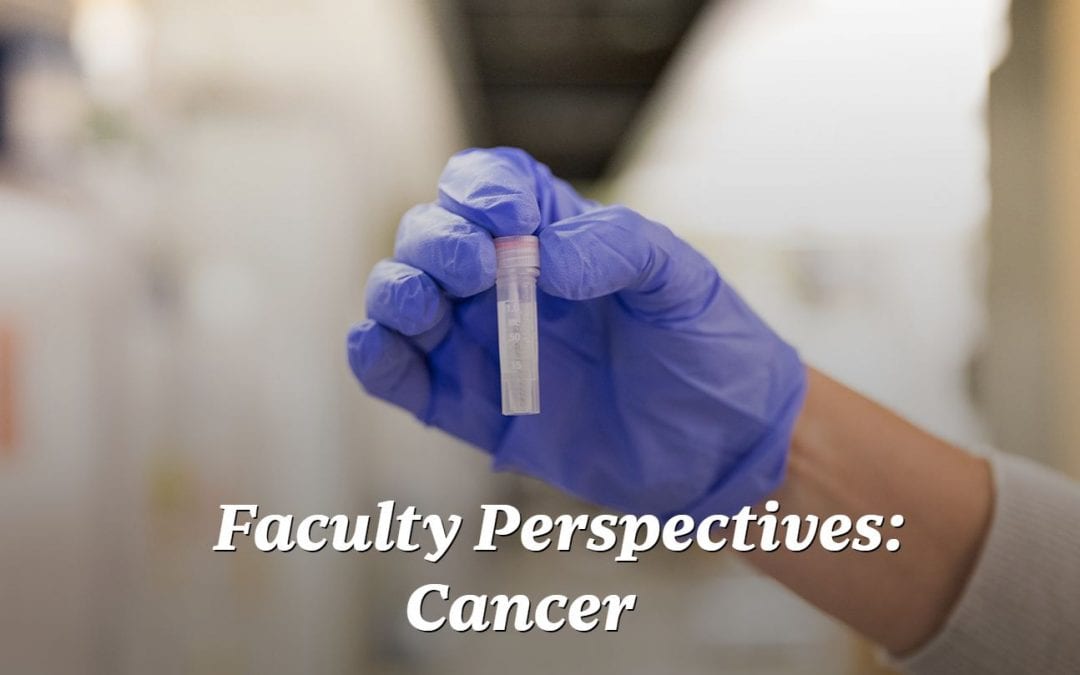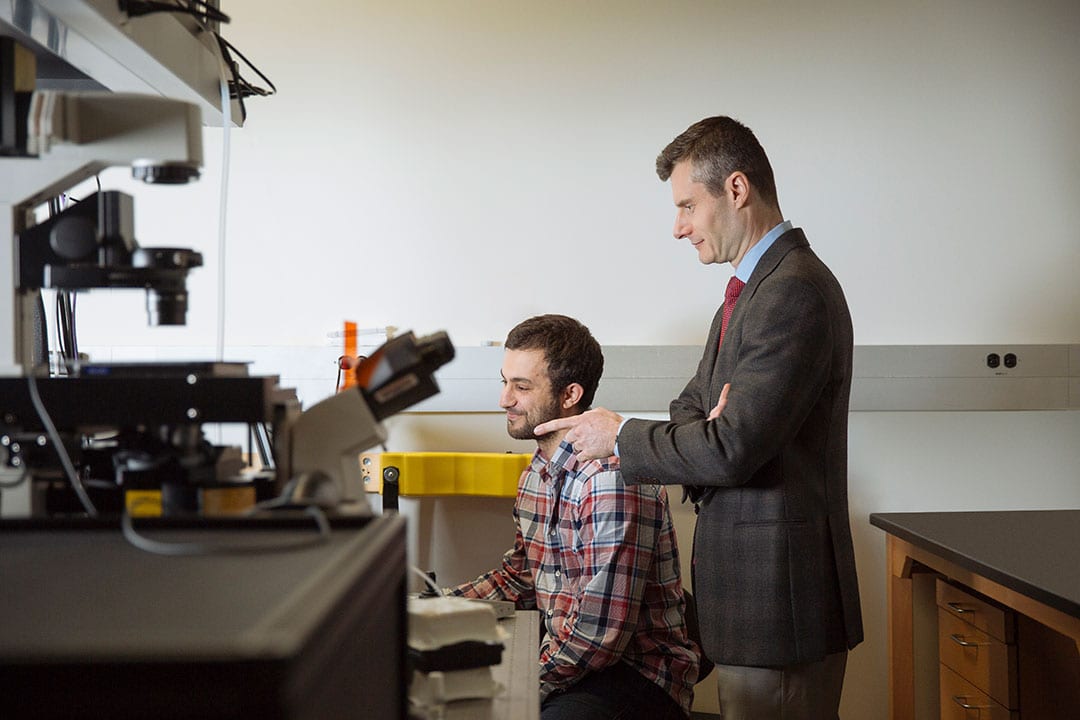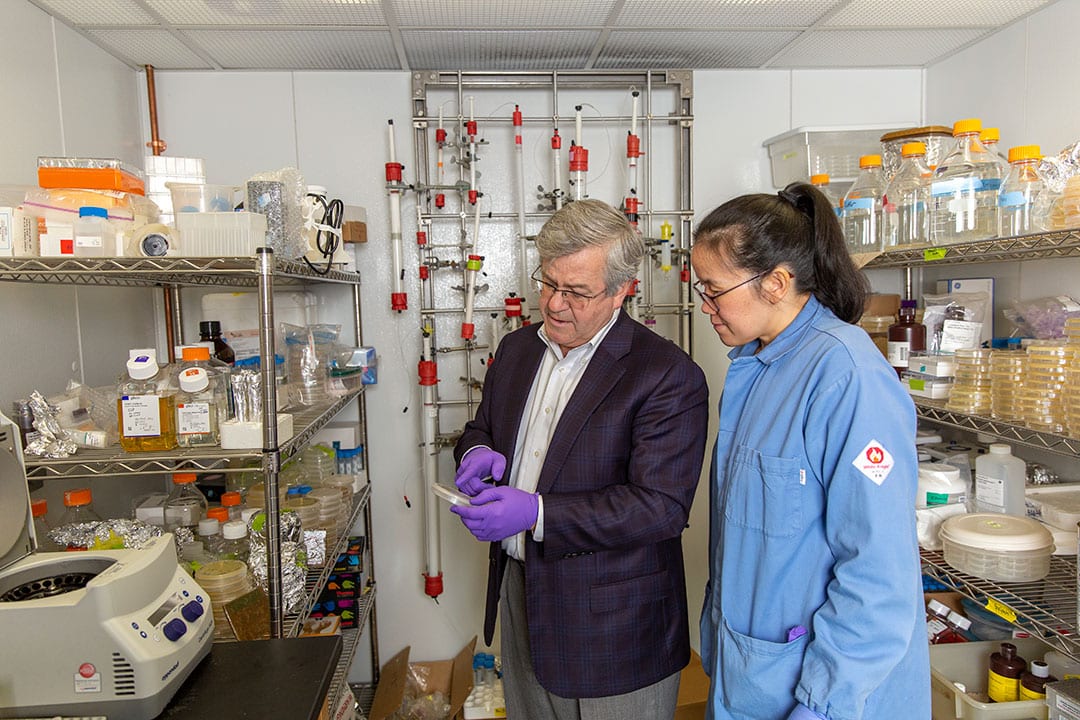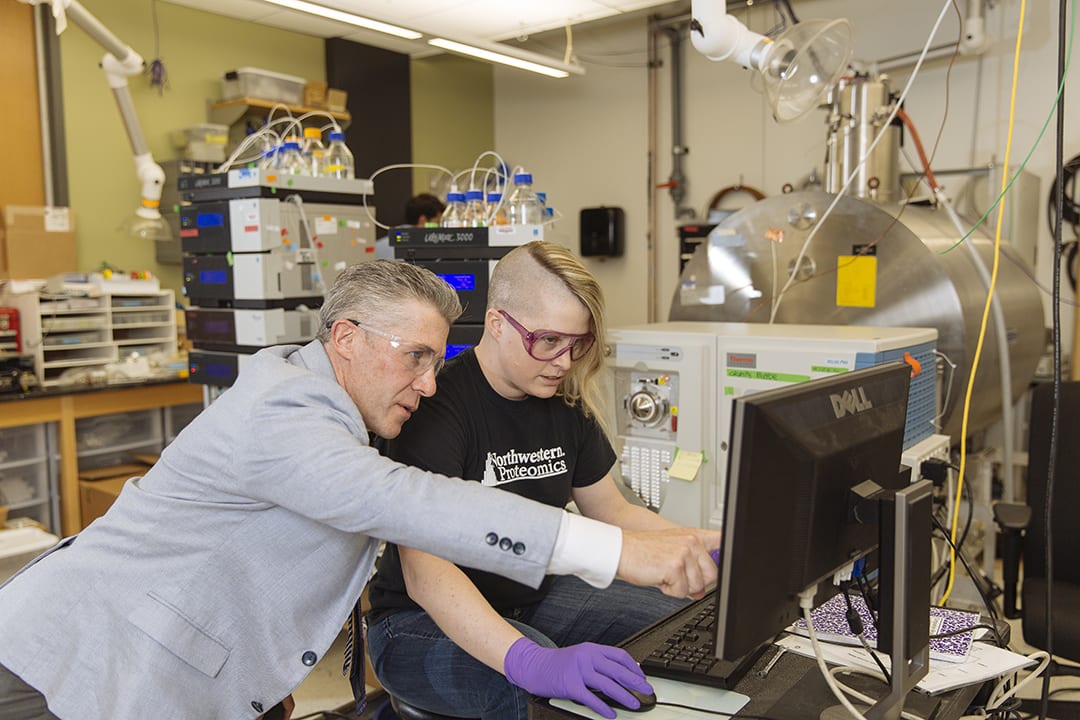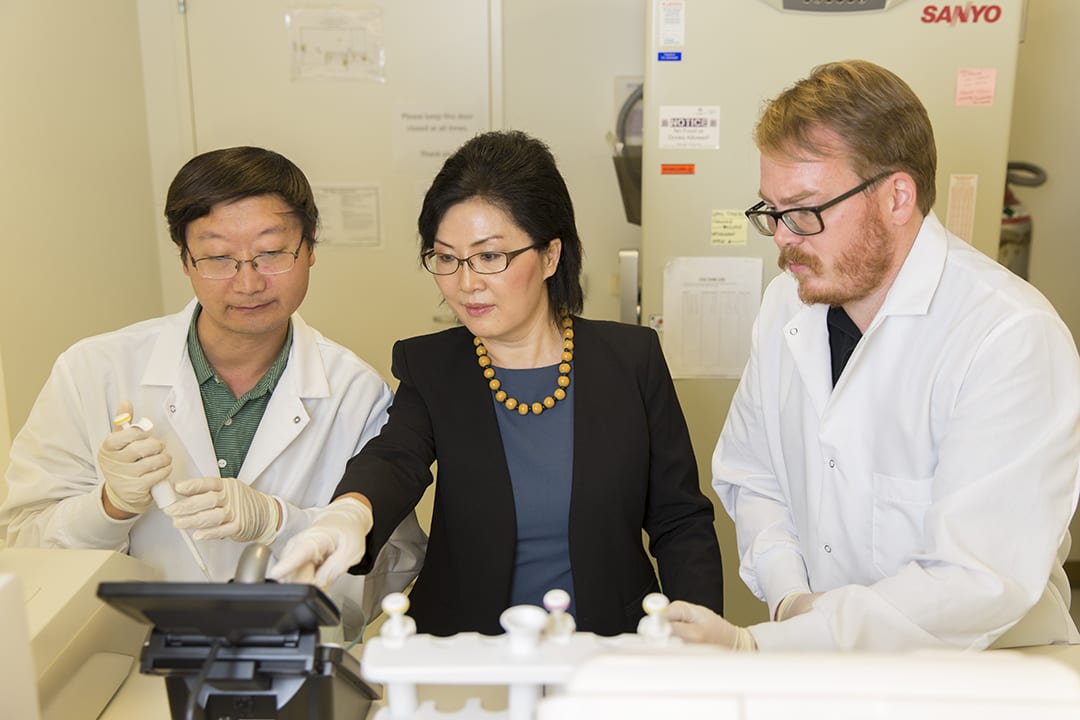Almost everyone has been touched by cancer in some way — whether they are a patient, caregiver, family member or friend. And while new prevention protocols and treatment strategies are attacking cancer in amazing ways, Northwestern is pushing for even more innovation and revolutionary research. Across engineering, chemistry, molecular biosciences and epidemiology, faculty are taking unique approaches to understanding — and hopefully defeating cancer. Chemistry of Life Processes Institute researchers, together with collaborators across the University and beyond, are at the leading edge of this research.
The biomedical engineer
“We see the same story unfold every time: A test seems to work for large cancers, but then it’s irrelevant because you don’t want to detect late-stage cancer. You want to detect something early and treatable. But as soon as you look at pre-cancerous lesions, or small but aggressive cancers, tests start to fail.”
See how CLP member Vadim Backman’s cancer-sensing technology revolutionizes early detection here.
The inorganic chemist
“It’s abundantly clear that we need completely new methods to try to shut down cancer proliferation. We’re very excited that our work could pave the way for new types of treatments for brain, breast and other very resistant cancers.”
Read more about CLP member Tom O’Halloran’s tiny, cancer-killing Trojan horses here.
The molecular bioscientist
“The Human Genome Project was an incredible feat of gene mapping and sequencing. We’re poised to do the same thing for proteins. We have to catalog the 1 billion proteins in the human body in order to build businesses, develop drugs, and detect cancer and other diseases with much greater efficiency.”
Learn how CLP member Neil Kelleher’s protein analysis technology can help defeat cancer here.
The epidemiologist
“We’ve been applying all these precision medicine technologies to cancer treatment — making decisions about drugs and therapies based on a patient’s unique profile. Now, we’re trying to do the same for cancer prevention. Without precision prevention, we’re just chasing after cancer, and we need to get ahead of it.”
Check out Lifang Hou’s push toward precision prevention here.
Original story appeared in Northwestern Now on December 03, 2018 by Clare Milliken.
